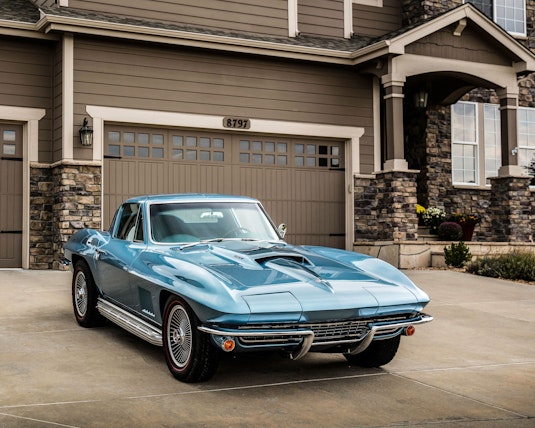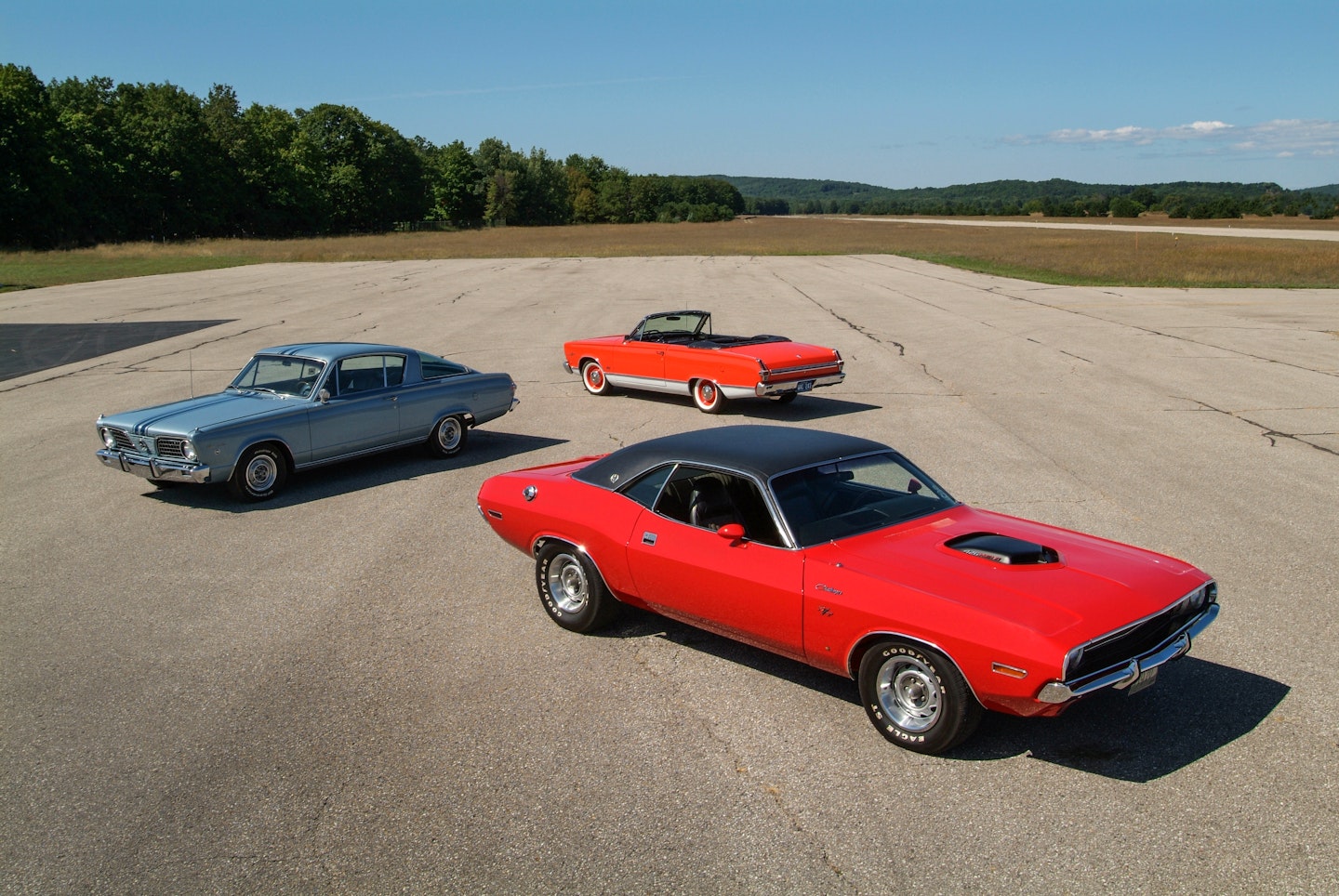What to Know When Buying a Classic Car
If you’re reading this, you’re probably contemplating a major decision - one of the most fun, most rewarding, most enjoyable vehicular purchases a person can make. You’re here because you’re on the hunt for a classic car!
This is exciting for so many reasons: You are looking at acquiring a valuable collectible; a piece of modern machinery that blurs the lines between product and art; a part of American or even International automotive history, part of a line that stretches back beyond Henry Ford and his Model T.
Just like when you give the kids a puppy for Christmas, this new addition to the family comes with some responsibility, but the payoff is more than worth it. But before you get to the driving part, you have to go through the purchasing part. Don’t worry - we’re here to help. (At Hagerty, we’ve done this a time or two.)
Knowing how to buy a classic car isn’t always intuitive, but there’s a lot of help out there—at Hagerty we have plenty of resources, guides and tools on all kinds of classic cars including how to have your car inspected, how to detail and maintain your car and of course - how to keep it safe and properly insured.
But what if you’re at the very beginning of your classic car hunt? What are the most important things to know before you start searching the auction sites and the classified ads? What questions do you need to ask and what decisions do you need to make about the car before you find it?
Let’s find out:
Why Do I Want to Buy a Classic Car?
“To own an awesome car” is probably at the top of the list, but in order to decide what car is right for you, we have to go a bit deeper than that. Do you want to drive this regularly, or just a few weekends a year? (If you want to mostly enjoy looking at your car in your garage that’s cool too!)
Do you want to join the classic car show scene? Drive it on a racetrack? Would you look forward to spending some time wrenching on it at home, or do you need something that will stay far away from a mechanic? Maybe you want something that’s a reliable daily driver with some style - or something you can potentially make a few bucks on DriveShare with.
A classic car can be a great way to meet new people, get some extra attention on the road, have fun, go fast, make noise and maybe avoid some depreciation. It can also be a great way to spend money, time and effort. Decide where you want to be on that sliding scale and with a little more education, you can dial in your decision accordingly.

Do I Expect A Return on My Classic Car Investment?
If the answer is “yes,” your decision making just got a lot harder. If you think you’re going to buy a car with a guaranteed higher resale price than your purchase price, it’s going to be tougher to find that car for your first classic purchase - and you’re probably going to have to spend more to get it into your garage.
Now, if you’re thinking about getting into the classic car market knowing that you’re going to spend some money and possibly not make it all back - but you know you’re going to get more than enough enjoyment out of your purchase to make it worth it - then the whole world of classic cars opens up to you.
For example: Restoring a classic car almost always costs more than you’ll sell it for at the end of the process. You’re going to see some for-sale postings saying something like “Invested $50K; willing to sell for $30K” or similar. You may write one yourself in the future. This is all okay if you enjoyed driving and owning that car between buying and selling it.
Classic car investments are often as much about luck as they are about making an educated purchase, and it’s impossible to know exactly what a car will be worth down the road. (Imagine if you bought a Delorean before Back to the Future came out, for example.) If that kind of financial uncertainty concerns you...
How Much More Work Am I Willing to Do?
Since you’ve read this far down, we’re going to assume you’re willing to burn a few additional calories to make sure your car is worth purchasing at the right value. If you’re already thinking “okay, this is way too much, just let me write a check” - well, expect to spend a little more than you otherwise might have to.
Before you buy, you need to know where you’re going to look: Are you going to an auction? A dealer? A private party sale in a parking lot somewhere? You definitely need to get the vehicle inspected before you purchase, and you need to know what mechanic to take it to for an informed eye. You need to know how to write a bill of sale and what documents to have available. Once you’re the owner, you might even need to figure out how to get that car home if it’s not running … or if it’s too pricey to take onto the freeway on its way back to its new garage.
Owners of classic cars have to deal with additional detailing to preserve the paint and chrome. Extra maintenance to ensure things like seals, plugs and belts are in working order. Classic cars may come with special needs for the fuel system, you’ll want to know where to find parts for the car you’ve purchased, and if you didn’t do the research on price, you might always feel like you got taken for a ride - the overpaying kind, not the fun kind.
It’s a lot! We know. But even despite all these extra things to know, it’s still worth it. Trust us. Especially when you crank the engine and give it a rev. You’ll see.

These are still the earliest steps in how to buy a classic car. There are plenty more in front of you - but if you can find an answer to these, you’ll be well on your way to making the right choices for you. No matter what, make sure to Enjoy The Drive!